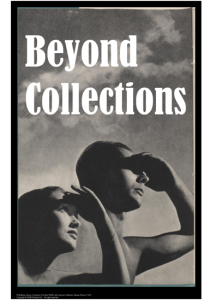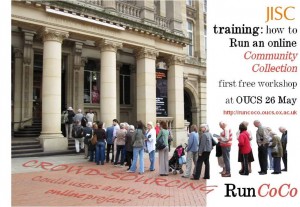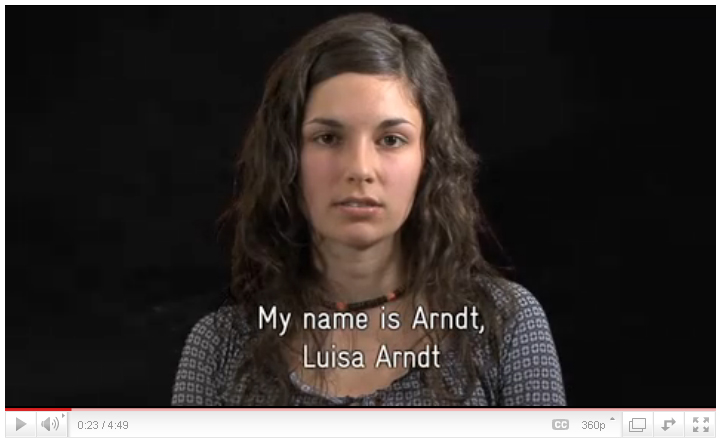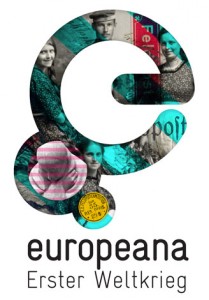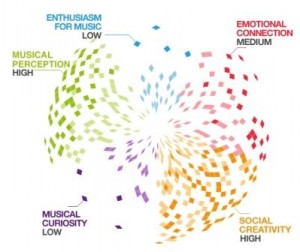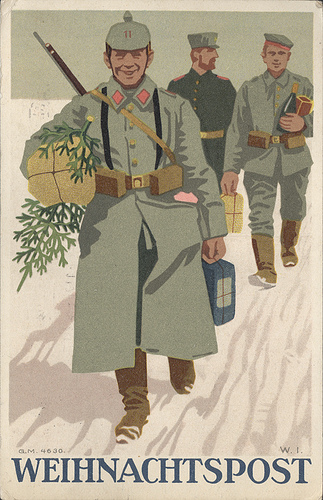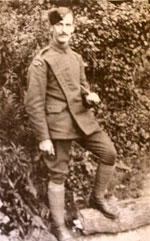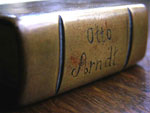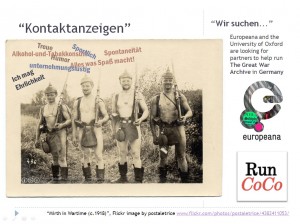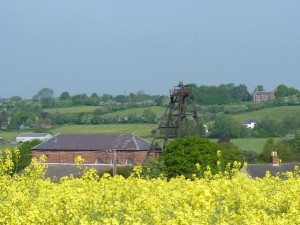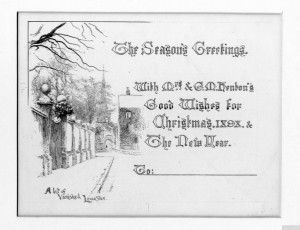The London Citizen Cyberscience Workshop took place at the end of January. Some 20 participants gathered to listen to a series of presentations about cyberscience projects, and to discuss the kind of questions that lend themselves to a cyberscience approach.
Citizen Cyberscience – the big picture
After welcome and introductions, Francois Grey (Citizen Cyberscience Centre and Tsinghua University, Beijing) presented ‘the big picture’ – an overview of the area with examples of different kinds of projects. He suggested that there are seven ‘myths’ that cyberscientists often have to fight against, seven views on cyberscience that many scientists raise against the notion of using cyberscience for their project. These are (slightly rephrased):
- Cyberscience doesn’t produce real science
- It won’t work for my science
- Nobody will be interested in my science
- You cannot trust results from ordinary people
- It is hugely wasteful (wasting energy)
- It doesn’t really engage people
- One day we’ll run out of volunteers.
Grey suggested that these have to be addressed in order to be able to engage scientists in cyberscience work (see also Citizen CyberScience Blog). Other talks by Francois Grey: ‘Citizen Cyberscience‘ (TEDx Warwick 2009), ‘From distributed computing to distributed thinking‘ (LIFT08).
Citizen Cyberscience in the Humanities
Mark Hedges, Deputy Director of the Centre for e-Research (CeRch) at King’s College London, talked about Citizen Cyberscience in the Humanities. He gave examples of a number of exciting project such as Transcribe Bentham, Great Ormond Street Hospital records (part of Historic Hospital Admission Records Project), East London Theatre Archive, and Suda Online. He described how many projects require some kind of specialist knowledge on the part of the contributor, for example ability to read and understand Ancient Greek or a familiarity with old terms for difference diseases, but suggested that it is possible to find that kind of expertise also outside traditional academic circles. Hedges also talked about how different motivations drive different people to get involved in citizen cyberscience, and that understanding what it is that attracts people to a project can be useful when designing the tasks to be performed.
Citizen Cyberscince in Anthropology
The anthropologist Jerome Lewis introduced us to work that has been conducted with Pygmy groups across the Congo Basin. By using specially developed software on mobile devises, the locals can record information about their environment which can then be used to ensure that important places such as hunting grounds, burial places or sacred trees are not disturbed by logging companies or prospectors. The devices are also used to collect information about illegal logging and poaching, which can be shared to help monitor and manage the agents involved. The project has encountered, and solved, a number of issues that may seem specific to the particular setting, but that could easily be found in many projects, such as how do you create an interface if you cannot use text, how do you ensure that you reach all relevant participant groups and how do you make sure that the participants know why they are taking part in the project and what it will mean for them?
Data gathering and mobile devices – three examples
Three talks followed, relating to data gathering and mobile devices.
David Aanensen presented EpiCollect – a (free!) web application that anyone can use to quickly create a data collection form and project website for a mobile data collecting project. It will not only let you create the form and run the collection, but you can also see the result of your collection on your project website. Getting started is easy – you create a project website (at EpiCollect.net), design a form using the intuitive online ‘drag-and’drop’ interface, load the form into the mobile app and start collecting data. You can choose what you collect; not only text but also GPS position and photos. You can view what has been collected at your project website or on your phone, and you can also download what you have collected. EpiCollect is an open source project developed at Imperial College, London. It is completely free to use. Currently supported mobile operating systems are Android and iPhone.
Mappiness is an iPhone app developed by George MacKerron and Susana Mourato at the London School of Economics and Political Science. Users of the app are ‘beeped’ at random times of the day and are asked to note how happy they feel at that moment. They are also asked about where they are and with whom. The data is submitted (anonymously) to the project where it is used for research on what environmental factors affect our sense of wellbeing.
We want to better understand how people’s feelings are affected by features of their current environment—things like air pollution, noise, and green spaces. (from the Mappiness website)
Participants can see their own data displayed as graphs or diagrams, showing for example when or where they are happiest. It is, of course, not possible to say whether it is this feature or the chance to contribute to research that has made so many people participate. The fact is that over 32,000 people have downloaded the application. George MacKerron said that this is well over expectation. He also noted that with success can come drawbacks. Continuing to develop the product, responding to user suggestions and queries takes time, and although media attention is welcome and will increase the amount of data he collects, it is also something that can take time away from doing what you originally set out to do – research.
The final presentation of the day was by Andy Hudson-Smith who talked about TOTeM – Tales of Things. The project has developed a way to link media (text, sound, images) to a physical object. The idea is that you tag things by attaching a small tag with an QR code which you can get from the TOTeM website (a bit like the barcode used in shops). You then link this code/thing to a story, a picture, or sound file. When someone spots the tag and scans it with their mobile phone, they will see the text or picture or hear the sound file. They can add their comments and by and by the ‘tale’ of the thing grows.
Group discussions
In the afternoon, the workshop changed into a more interactive mood and participants moved into small groups. The groups discussed a number of questions, such as ‘What will we be able to do in the coming years with citizen cyberscience?’, ‘How can we move to wider applications and involve more people?’ and ‘What kind of research will we be able to carry out with citizen cyberscience?’. Other questions included ‘What are the technological developments that are required?’, ‘What are the social aspects that we need to understand?’ and ‘What are the sources of funding?’ Although no definite answers were arrived at, many good ideas were raised and it was generally concluded that it was a useful and rewarding exercise.
The whole day was very much appreciated by the participants and it was agreed that this kind of (fairly) local event was very useful to raise awareness of the work that is going on and to prepare for future challenges and opportunities. There was considerable interest in seeing further events of this kind, hopefully before too long.
